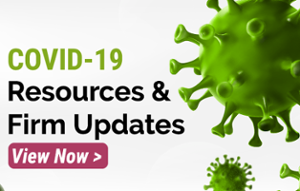On April 14, 2020, the U.S. Small Business Administration released the Business Loan Program Temporary Changes; Paycheck Protection Program – Additional Eligibility Criteria and Requirements for Certain Pledges of Loans, which provides additional guidance for those who are self-employed. We have highlighted some of the key takeaways from the new guidance below.
For self-employed
- Paycheck Protection Program (PPP) Loan is based on 2019 Schedule C net income with a max of $100,000. No amount of SE health or SE retirement is added for a schedule C owner.
- In order to get the PPP loan, a 2019 Schedule C is required with the loan application.
- If the amount of your 2019 Schedule C is zero (and you have no employees), you do not qualify for PPP.
- Partnerships may add the self-employment income of general active partners up to $100,000. Partners do NOT apply for PPP individually.
- SBA will issue more guidance for Schedule C businesses operating on 2/15/2020, but not in business for 2019.
- You should be aware that participation in the PPP may affect your eligibility for state administered unemployment programs.
Loan forgiveness calculations for self-employed
- Forgiveness is based on eight weeks of the 2019 Schedule C for an owner’s “payroll”. Forgiveness has nothing to do with 2020 net income. For example, if the $100,000 limit was reached in 2019, the PPP loan is $20,833 and the owner’s “payroll” is $15,385 to be forgiven automatically. This leaves $5,448 to be covered by rent, mortgage interest, or utilities.
- In addition to the loan principal, accrued interest on the loan can also be forgiven. Interest accrues at a rate of 1%.
- Interest on an auto loan qualifies according to this guidance. This clarifies that mortgage interest includes any loan with hard collateral (real or personal property).
- The gas you use to drive your business vehicle is considered a utility payment, according to this guidance.
- If expenses were not deducted on 2019 Schedule C, the business owner can’t claim them now for forgiveness.
For questions or assistance, click the button below or call 717-569-2900.






